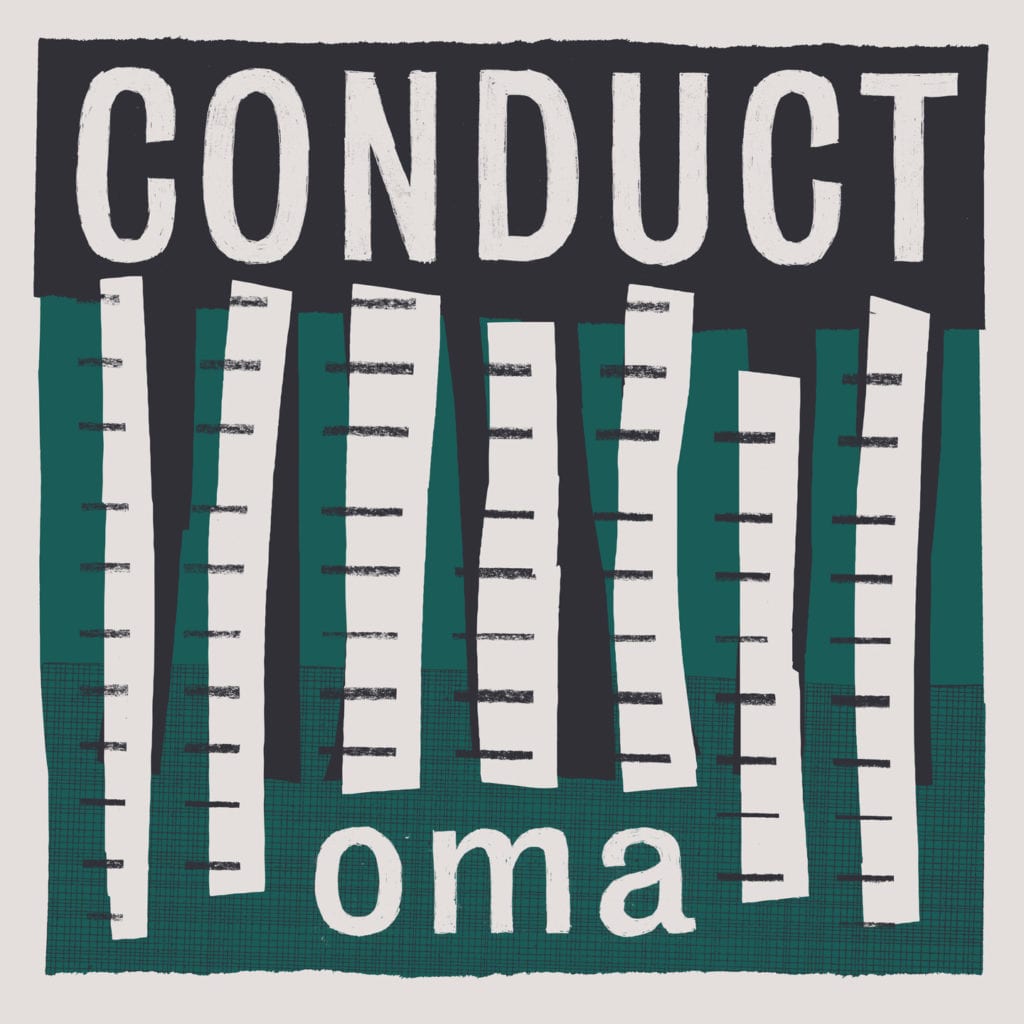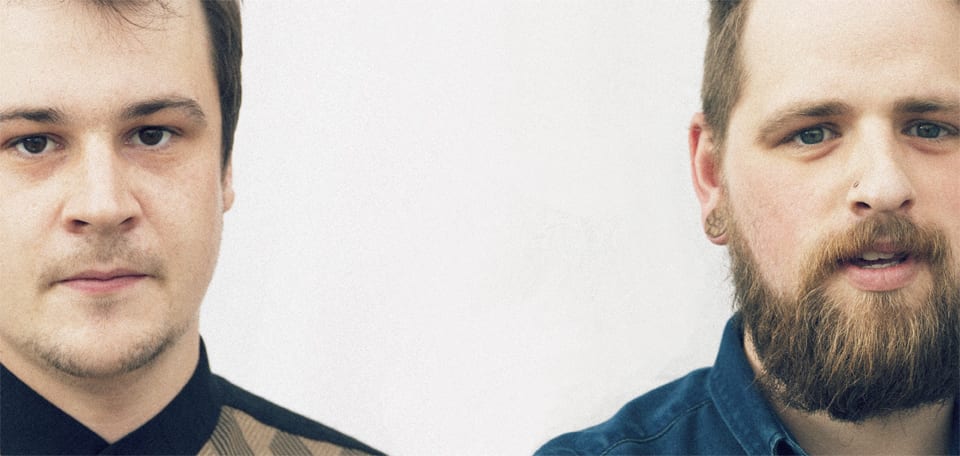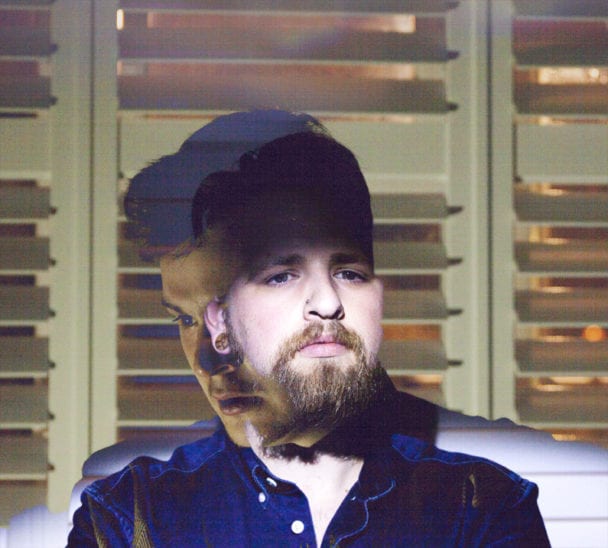
Every once in a while an album comes along that bowls you over, locks you to the floor and tells you to shut up and listen. Conduct’s stunning sophomore LP on Blu Mar Ten Music does exactly that, but also manages to pick you back up, grabs your hand gently and guides you on a real sonic journey. A journey that sees you crossing continents the world over, in true Conduct fashion.
12-tracks deep, Oma picks up where Borderlands left off, but dives even deeper, flaunting a powerfully beautiful unity of sounds, carefully constructed and expertly executed.
Welcome In, the aptly-titled opening track, sets the tone for the rest of the album perfectly. Ambient, bold, cinematic and emotional all-in-one. Boundary-pushing, genre-bending bass music at it’s finest.
This is Conduct at their most inspired. We caught up to find out more about this simply epic body of work. Get the album mini-mix in your ears and read on…
Oma runs seriously deep. Much like all of your output. Left me positively floored and speechless, which made the prospect of an interview quite daunting if I’m honest! Did work on this album begin as soon as you completed Borderlands?
Robin: What an introduction – thank you so much, that means a lot. I should probably start off by pointing out I’m doing this interview from a hospital bed and I’m quite full of morphine so please excuse any babbling!
We love a bit of morphine powered babble! Go on…
We started before Borderlands was out, that LP turned into quite an extensive process to release tbh. We’d finished Out Of The Blue & Uharibifu in totality before Borderlands was even released if I remember correctly! No rest for the wicked…
Indeed! How different was your creative process and approach to this album compared to the first then?
Robin: Really quite different to be honest, we learned a lot from the first LP, and spent a huge amount of time over the last year developing the sound as a whole, not just for Oma, but for Takai and Matriarch as well, so it sounds like one solid body of work. We’ve been trying to figure out, develop and expand on what Conduct actually is, and dig ourselves into a nice comfy groove.
Did you commence the project with more confidence already having an album under your belt?
Robin: Nah, it’s totally scary doing a second album. When we were writing Borderlands, the world was our oyster, we barely existed, so could have pushed anything we wanted. Oma really had to cement our sound, really had to make our stamp on the world and with that comes a huge pressure.
Your 2nd album is so important, I’ve had this discussion so many times – It can make or break your long-term career, I’ve seen it happen so much where debut albums have been greatly successful and bands or producers struggle to maintain the initial hype for their next project. You have a lifetime to develop your debut, but only 1-2 years in most cases for your second – it was about 10 months for us this time round – and you have to exceed people’s expectations. I hope we’ve pulled it off!
You most certainly did! Did you dive in with a specific concept or framework in mind?
Chris: Yeah, we wanted more. Borderlands attempted to take you out into the desert, but this time with Oma we wanted to take you around the world, deep into the jungle and down to the bottom of the ocean. The atmosphere and subconscious imagery were by far the most important aspects of writing. We want every song to say something, we don’t want it to just be dance music, we want it to be something more.
Job well done. Was the album title inspired by anything in particular?
Robin: Oma is the German translation of Granny, and also the shortened version of ‘Omakia’ – meaning to run / flee, in Māori. Both had really poignant meanings to us, given the travel, full-world focus of the album, Chris’ family difficulties over the last year, and the overall secondary theme of escapism, we felt it fit perfectly.
The track titles are intriguing overall. How do you go about deciding on track names in general, is that something that comes after the track is finished?
Chris: Yeah the names usually come afterwards to be honest, we sit for a few listens and talk about the vibe of the track and discuss words that will help stimulate the image we want to create for the listener. The language of origin for those words is sometimes a part of that image, but sometimes it’s simply ‘cause we’ve found a really cool word for the idea we wanted to convey.
I’ve always wondered whether an artist can be as moved as the listener from their own music? Did any tracks on the album give you goose bumps when you listened to them in their entirety, or are you somewhat sick of them by the time you land on the completed versions after spending so long with them on loop?
Robin: Yeah, fully. Such personal emotions go into the writing that I can’t help be moved by it. Quite a few of them invoke a huge emotional response in me still, and I’ve listened thousands of times now, most notably Pittance, Escapism and Way ‘ob (off the Matriarch EP). I spend a huge amount of time worrying if people will be able to get the same response from the music as I do, to be frank.
Well I certainly did! One of my personal faves is The Rain, It Come. Almost fell off my chair when I first heard it. That’s a half-time tribal war cry if I ever heard one. Sounds like it belongs on the Apocalypto soundtrack  What’s the story behind this one?
Robin: The Rain, It Come was born on a day when it was pissing it down so hard at the studio that my friend Rick and I were stuck there literally all day long. I had been building the drums and was recording the rain hitting our very loud corrugated roof for some intro ambience when Rick announced ‘The rain, it come’ and the whole shamanic rain-dance-war-cry-stomper thing just exploded from there. He did a phenomenal job of those vocals given he’s never done anything like that before, and we’re gonna try and explore some ideas similar to this again in the future.
These tribal / middle-eastern themes run through a lot of your work – where does the inspiration for this sound come?
Chris: We are fascinated by different cultures from around the world, specifically tribal cultures whether it be their music, language or practices. It so exciting hearing an unfamiliar instrument or rhythm. We all get a bit bombarded with western influences, its nice to get away from that sometimes.
Absolutely. You guys have a diverse musical history between you. How much of what we can hear in the album was recorded live?
Chris: A fair bit of it is recorded live actually. All of the guitars, there’s flute, there’s a m’bira, there’s bass guitar and some live drums too. A lot of the vocals are performed by Robin, too. It’s really important to us moving forward that we’re able to perform this stuff live, too.
Epic, looking forward to that! A lot of your work transcends genres, which I really love. There’s a real air of confidence in your sound, and a willingness to push certain boundaries. How did you both get into production and get to joining forces as a duo?
Chris: Thank you. We don’t really want to pigeon-hole ourselves into only writing drum & bass. What is great about the D&B scene is its willingness to experiment, and how the majority embrace it.
We met about 10 years back when I was just starting out producing, Robin would give me production advice and would share his new tracks he was working on as Deep Focus. We started a few tracks together and it worked really well so we thought we’d give it a go properly, then spent basically every minute we could refining our sound in the studio.

Do you think it’s important for artists to push genre boundaries to ensure their sound doesn’t get stale/ generic?
Robin: Dance music’s really weird for that. Obviously this is our opinion, but there are all these pockets of artists that sound really similar, just approaching the production slightly differently and neglecting. What’s the point? We really want more than that, we want to leave a stamp and a legacy on this world, we want to do something special.
Well that’s certainly what you’re doing. What are each of your strengths in the studio and what makes you work so well with each other?
Chris: We are pretty like-minded in our musical taste and our personalities are pretty similar too, so I think thats why we gel so well in the studio. We are both very much on the same page in terms of where we want to take Conduct and how we should go about getting there.
Robin is an immensely talented musician which is a huge factor in how we write our music. We try and incorporate as much live instrumentation as we can. I’m much more comfortable behind a laptop tweaking a snare or experimenting with the recordings.
You guys seem to have found a really happy, inspiring home at BMTM. How did the link with the label come about?
Robin: Ahh that was an old show I was doing as Deep Focus in an underground car park somewhere in Prague, at the first ever Imagination Festival where we met Jani and Erno L.A.O.S.
I’d taken Chris with me on the trip & we’d really got along with the guys, and they liked what we were doing so forwarded our music onto Chris BMT. It wasn’t until quite some time later that we’d actually met up with him, and then quite some time again until we’d settled on the sound we pushed with Borderlands.
The original demos Chris heard were trash by comparison, but he must have spotted something. His advice was hugely instrumental for us.
How did he react when he first heard Oma? 
Chris: Pretty stoic, I kept my eye on his foot to see if it was tapping and occasionally he’d point at his speakers and say ‘nice’ or do that scrunch your face up man-nod which as we all know is the ultimate compliment! Hehe…
Haha that’s about as good as it gets! The range of sounds you guys produce is quite overwhelming. Powerfully epic, emotional, cinematic soundscapes. If you had the opportunity to compose the soundtrack for any film, which would it be?
Robin: That’s career goal number one for me to be honest. Interstellar would have been the one, personally. There’s a hugely diverse range of emotion in that film that would have been incredible to build upon. Not that I’m saying I could compete with Zimmer’s score on any level… The soundtrack to that film is absolutely incredible.
Chris: I think it would be really cool to do some of the sound design on something like Transformers, or something else with massive robots. All the intricate mechanical sounds would be great fun to record and manipulate.
If you weren’t making music, what do you think you’d be doing?
Robin: Drawing & painting were always my other big passions at school. I’m son to an incredibly talented artist and that would definitely have been my path otherwise. You can’t have two careers though I feel, you’re far less likely to succeed at 2 things you give 50% of your time to, so music was my choice at around 16, and 14 years later I’m still so pleased I made that decision!
Chris: I have always been creative, whether it be drawing random cartoons, or doing macro photography or messing about with photoshop. So probably doing something in one of those fields.
So where to from here? Some much-needed down-time, or are you already working on new material?
No down-time, we’ve already started album 3!
Last release that gave you goose bumps?
That new Lewis James EP on Astrophonica is amazing…
Final shout outs?
Huge thank-you to Chris Marigold, Georgia May Lloyd & Rick Edwards for their contributions and support throughout this project. Couldn’t have done it without them.
Oma is due for release on October 13 – pre-order here.
Conduct:
Facebook
SoundCloud
Blu Mar Ten Music:
Facebook
SoundCloud
Link with Drum&BassArena on:
Spotify
YouTube
SoundCloud
Mixcloud
Facebook
Twitter
Subscribe to our weekly newsletter
